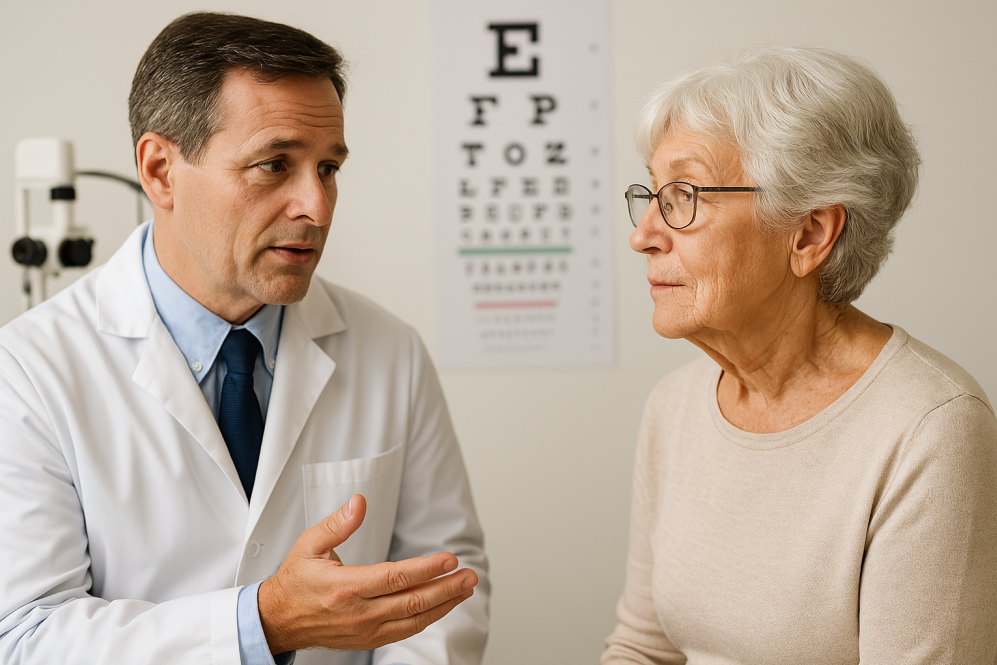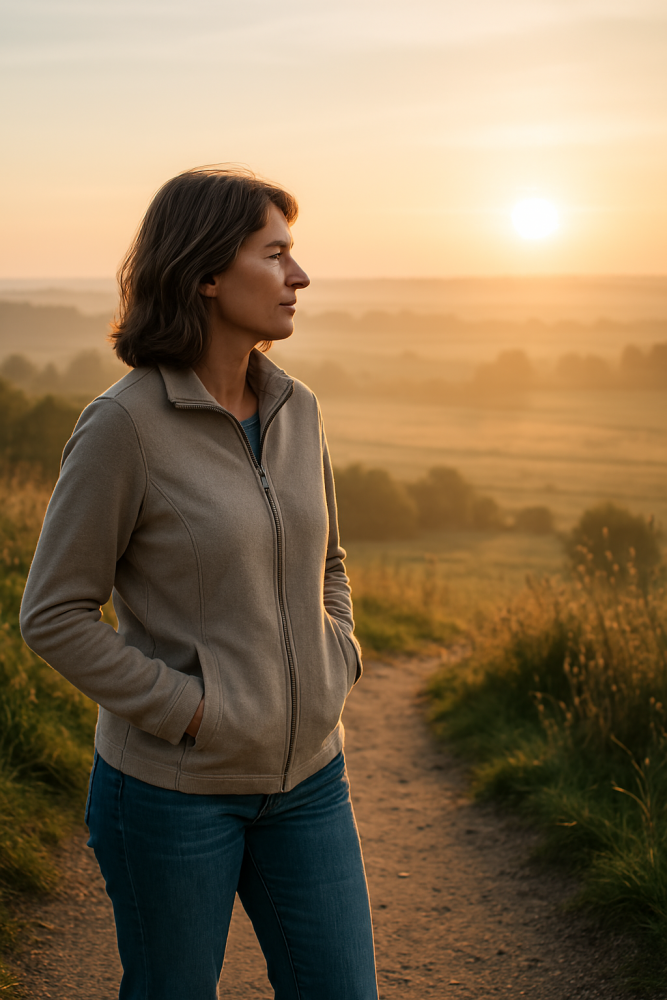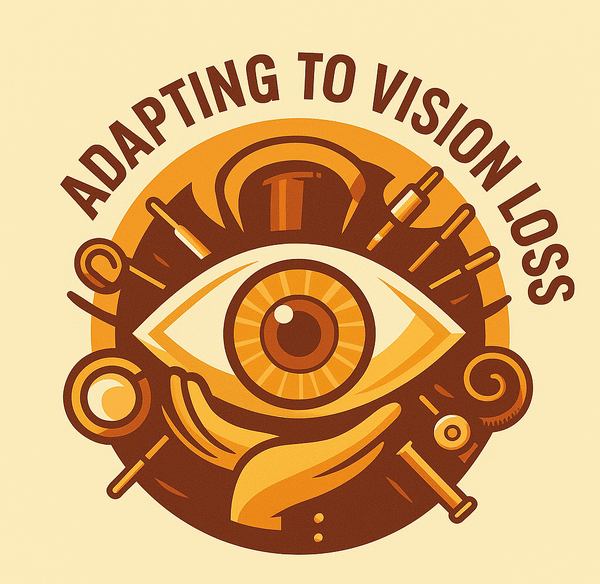The Moment Everything Changed
Growing up, I was a shy child. But by adulthood, I’d grown into an independent, capable woman who believed I could handle anything life sent my way. If I ever faced something like macular degeneration, I told myself I’d be strong enough to face it head-on.
Looking back now, I realize that confidence was partly denial. I never really believed vision loss would happen to me. But when it did, everything changed—and this is my macular degeneration diagnosis story, the moment that divided my life into “before” and “after.”
 How I saw myself then—strong, independent, and ready for anything. I had no idea how much was about to change.
How I saw myself then—strong, independent, and ready for anything. I had no idea how much was about to change.
🧭 The Moment Everything Changed
The macular degeneration diagnosis happened during what I thought was a routine eye exam in my early fifties. My doctor explained that I had the dry form of macular degeneration. He told me it might progress slowly, and at first, that sounded manageable.
But the truth hit me the moment I walked out of the office:
This wasn’t going to be a small adjustment — it was going to reshape everything.
Back in the early 1990s, information about AMD was incredibly hard to find. There were no Facebook groups, no YouTube explanations, no easy-to-read medical websites. If you wanted help, you had to make phone calls, order printed pamphlets, or try to absorb complicated medical jargon during short doctor visits.
Accessibility tools were almost nonexistent.
No magnifier apps.
No accessible smartphones.
No built-in screen readers.
 The moment everything changed—hearing the words that marked the beginning of my journey with vision loss
The moment everything changed—hearing the words that marked the beginning of my journey with vision loss
💛 Choosing a Different Path
My diagnosis was the same type my mother had struggled with. I had watched her world grow small after being told she had macular degeneration. She withdrew from the activities she loved. She stopped trying. Her confidence faded long before her vision did.
I quietly promised myself that if I ever developed AMD,
I wouldn’t let it break me.
But when my own diagnosis arrived, that strength didn’t show up immediately.
I spent months in denial—functioning on the outside while falling apart inside.
Eventually, I remembered the promise I had made. I didn’t want to live my mother’s story. I wanted a different ending.
 That moment of reflection became my turning point—when I stopped resisting and started reclaiming my life.
That moment of reflection became my turning point—when I stopped resisting and started reclaiming my life.
One quiet morning at sunrise, standing on a worn path in the countryside, I finally accepted the truth.
I could resist what was happening—or I could learn to live differently.
That moment was my turning point.
From then on, I committed to finding tools, learning new techniques, and rebuilding my confidence piece by piece. I reminded myself often that:
Vision loss does not mean life loss.
🩺 Treatments Then—and the Options Available Today
When I was diagnosed, treatment options were limited. My doctor explained that dry AMD had no cure, and the best approach was to monitor changes and adapt as needed.
Today, the options are far more hopeful.
For Dry AMD
AREDS2 supplements
A clinically proven blend of vitamins/minerals that may slow progression in intermediate or advanced dry AMD.
Lifestyle factors
Healthy eating, managing blood pressure, avoiding smoking, and protecting your eyes from UV light all support long-term vision.
Emerging treatments
Research is ongoing into medications, implants, and gene-based therapies that may expand future dry AMD options.
For Wet AMD
While I never developed wet AMD myself, today’s patients have access to highly effective anti-VEGF injections such as:
-
Lucentis
-
Eylea
-
Vabysmo
-
Beovu
These treatments help stop abnormal blood vessels from leaking and can preserve or even improve central vision when started early.
🌱 Why I’m Sharing My Story
If you’ve recently received a macular degeneration diagnosis—or if someone you love is facing this journey—I want you to know:
You are not alone.
The tools may be more advanced today, but the emotions are still the same:
fear, uncertainty, frustration, grief… and eventually, strength.
My diagnosis was the moment everything changed. But it wasn’t the moment my life ended. It was the beginning of a different kind of life—one built on adaptability, resourcefulness, and purpose.
And your story can be that way too.
